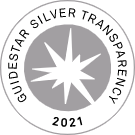Apply Using the following guidelines
Eligibility
Anyone may apply, however preference will be given to currently-enrolled students (undergraduate and graduate level) and early-career faculty conducting herpetological research.
Eligible Expenses
Expenses eligible for funding include: (1) travel (e.g., fuel, airfare) associated with field research; (2) equipment (field-based or laboratory-based). Funds may not be used for salaries, personal expenses, travel to meetings, overhead, or any other indirect costs.
Criteria for Awards
The following criteria will be used to select award recipient:
A. Scientific merit of the proposed project.
B. Nature of the proposed project; priority will be given to natural history studies, in particular those on threatened and endangered species, as they are an underfunded yet crucial first step for informing conservation policy.
C. Need and urgency for research to be completed.
Application
To qualify for the grant, applicants research must pertain to an aquatic snake species, including but not limited to: marine Elapids in the subfamilies Hydrophiinae and Laticaudinae; Homalopsidae; Acrochordidae; aquatic colubrids; and aquatic boidae; and other species considered primarily aquatic in nature. In accepting the grant, the recipient agrees to acknowledge Herpetological Conservation International in any publications or public presentations of research funded by the grant. In accepting the grant, the recipient agrees to an interview with HCI that will be posted on various HCI social media platforms so HCI members may "meet" the recipient. The recipient also agrees to abide by all applicable wildlife laws and obtain IACUC approval (or equivalent) from their institution.
Herpetological Conservation International grant applications must include the following:
1. Cover page including the following: Project title, applicant's name, address, phone, and email.
2. Introduction: Provide background for the proposed work. Include a clear statement of the problem being addressed and any outcomes predicted as a result of the research.
3. Materials and methods: Describe the study site and the materials and methods that will be used to accomplish the objectives of the proposed research. Indicate whether you have an approved Animal Care (IACUC or equivalent) protocol covering the proposed methods or whether you will be submitting such a protocol. When necessary, diagrams, images of plans, and maps may be referred to in text and attached at the end of the document and do not count against the five-page limit
4. Intellectual merit and broader implications: Address the potential for your research of advancing herpetology or herpetological conservation/public education.
5. Budget: Indicate the budget for the entire project and clearly state what portion the HCI grant will fund.
6. The anticipated completion date of the research.
7. Applicant curriculum vitae
8. Letters of support: Student applicants must include a letter of support from a faculty advisor. For non-academic individual and institutional applicants, letter(s) of support from collaborating partners, institutions, or past advisor are required. Letter(s) of support should be emailed and should include an address and phone number at which the writer can be contacted.
Application proposals should be submitted electronically as a Word document or single PDF file. Begin the file name with the applicant's last name (e.g., lastname_HCIgrant.pdf). Letters of support may be attached as separate files. The entire proposal should be double-spaced and not exceed 5 double-spaced pages (excluding cover page, literature cited, applicants CV, necessary figures, and letters of support) and should be typed using a common font (e.g., Arial, Courier, Times) no smaller than 10 pt.
Grant proposals or questions for Herpetological Conservation International about the HKV Aquatic Snake Conservation And Research Grant should be emailed to directly to info@herpconservation.com
HCI is a Non-profit 501(c)3 EIN: 47-1633701
Herpconservation.org
Anyone may apply, however preference will be given to currently-enrolled students (undergraduate and graduate level) and early-career faculty conducting herpetological research.
Eligible Expenses
Expenses eligible for funding include: (1) travel (e.g., fuel, airfare) associated with field research; (2) equipment (field-based or laboratory-based). Funds may not be used for salaries, personal expenses, travel to meetings, overhead, or any other indirect costs.
Criteria for Awards
The following criteria will be used to select award recipient:
A. Scientific merit of the proposed project.
B. Nature of the proposed project; priority will be given to natural history studies, in particular those on threatened and endangered species, as they are an underfunded yet crucial first step for informing conservation policy.
C. Need and urgency for research to be completed.
Application
To qualify for the grant, applicants research must pertain to an aquatic snake species, including but not limited to: marine Elapids in the subfamilies Hydrophiinae and Laticaudinae; Homalopsidae; Acrochordidae; aquatic colubrids; and aquatic boidae; and other species considered primarily aquatic in nature. In accepting the grant, the recipient agrees to acknowledge Herpetological Conservation International in any publications or public presentations of research funded by the grant. In accepting the grant, the recipient agrees to an interview with HCI that will be posted on various HCI social media platforms so HCI members may "meet" the recipient. The recipient also agrees to abide by all applicable wildlife laws and obtain IACUC approval (or equivalent) from their institution.
Herpetological Conservation International grant applications must include the following:
1. Cover page including the following: Project title, applicant's name, address, phone, and email.
2. Introduction: Provide background for the proposed work. Include a clear statement of the problem being addressed and any outcomes predicted as a result of the research.
3. Materials and methods: Describe the study site and the materials and methods that will be used to accomplish the objectives of the proposed research. Indicate whether you have an approved Animal Care (IACUC or equivalent) protocol covering the proposed methods or whether you will be submitting such a protocol. When necessary, diagrams, images of plans, and maps may be referred to in text and attached at the end of the document and do not count against the five-page limit
4. Intellectual merit and broader implications: Address the potential for your research of advancing herpetology or herpetological conservation/public education.
5. Budget: Indicate the budget for the entire project and clearly state what portion the HCI grant will fund.
6. The anticipated completion date of the research.
7. Applicant curriculum vitae
8. Letters of support: Student applicants must include a letter of support from a faculty advisor. For non-academic individual and institutional applicants, letter(s) of support from collaborating partners, institutions, or past advisor are required. Letter(s) of support should be emailed and should include an address and phone number at which the writer can be contacted.
Application proposals should be submitted electronically as a Word document or single PDF file. Begin the file name with the applicant's last name (e.g., lastname_HCIgrant.pdf). Letters of support may be attached as separate files. The entire proposal should be double-spaced and not exceed 5 double-spaced pages (excluding cover page, literature cited, applicants CV, necessary figures, and letters of support) and should be typed using a common font (e.g., Arial, Courier, Times) no smaller than 10 pt.
Grant proposals or questions for Herpetological Conservation International about the HKV Aquatic Snake Conservation And Research Grant should be emailed to directly to info@herpconservation.com
HCI is a Non-profit 501(c)3 EIN: 47-1633701
Herpconservation.org


